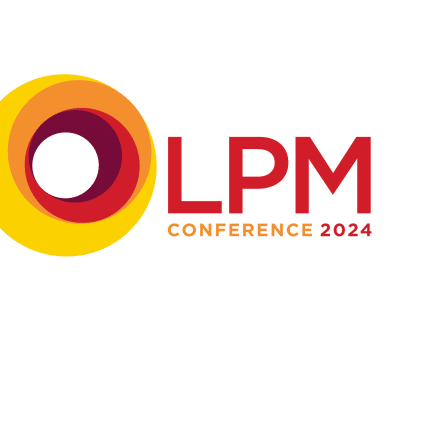
Radical on purpose
A new wave of SME law firms is placing purpose at its core, arguably paving a radical new direction within the legal industry. Leaders at some of these law firms tell Suzanna Hayek, deputy editor at LPM, the reasons that underpin their decisions to be ‘purpose-led’ and what it has meant for their progress.
A new type of SME law firm is emerging, driven by what they call a ‘revolutionary’ vision of making a positive impact beyond the traditional realms of legal services. These ‘purpose-led’ firms think of themselves as trailblazers, breaking away from conventional profit-driven models to put societal impact and the experience of their employees at the forefront of their operations. And the business case for being purpose-led is compelling.
PwC defines purpose as an organisation’s reason for existing beyond just the financial — setting out why the organisation matters, building on its core and articulating the value of the organisation to wider societal stakeholders. A purpose should create value for both shareholders and stakeholders.
What are the business benefits?
An organisation with a clear purpose could see improved employee engagement and build a more recognisable brand, according to research by consultancy firm McKinsey. Lenders and investors are more likely to funnel money into the business if it’s purpose-led and its interests extend far beyond the financial, according to Harvard Business Review. Research by Deloitte shows that purpose-oriented companies report 30% higher levels of innovation and 40% higher levels of employee retention compared to their competitors.
Radical firms
While trying to carve out a niche and differentiate its services from larger firms, CFG, a serious and catastrophic injury firm, started to question what it was all about. Group CEO Richard Clark does not think price competition is a winning strategy.
“Legal services are becoming more and more focused on price rather than understanding the value they offer. The danger is that it can become a race to the bottom if you’re not careful. The next stage is that you could differentiate on service, like in any commoditised market but there is so much more to what we offer,” explains Clark.
Therefore, we decided to turn the whole model on its head by identifying what we are here for, our purpose and how we can positively impact society which also includes the careers of our colleagues. Essentially, you start off by trying to look at exactly what you’re about, why you are the organisation that you are and what you want to ensure you don’t lose sight of,” says Clark.
Determining a purpose has provided a clear focus for CFG, which permeates and influences every part of its operations, according to Clark — from recruitment and securing work, to looking after clients and their families, even long after a case has been settled. It has enabled the firm to remain focused and operate in a way that is focused on the client, is compassionate — and not purely driven by profit. The firm actively tries to reach as many people with injuries as it can by building partnerships with various charities and not-for-profits.
Clark points out that some larger firms may ostentatiously present themselves as purpose-led entities — when in reality, they prioritise profit over the welfare of their clients. Is purpose often used as nothing more than a marketing strapline?
“Large law firms will say ‘we’re purpose-driven, and we look after clients.’ But when you dig down underneath, fundamentally, those are the firms that are just what they’ve always been. They are doing what they’ve always done and doing it well and servicing clients well, but are they doing it in a way that makes sure they’re doing the best for the clients before they look at profit?”
Disgruntled by the state of law firm culture and having experienced toxic environments in several law firms, Mandeep Kaur Virdee thought there must be another way. She says she rarely heard conversations around diversity and wellbeing taking place prior to Covid-19. Virdee recognises the recent interest the Solicitors Regulation Authority has taken in trying to shed light on these issues.
“I had experienced quite a significant degree of the ugly legal culture we now hope is in the past, but unfortunately is still deep rooted. Back when people would rarely talk about it, you just existed and that was it. You could be replaced by five other lawyers and no one would bat an eyelid.”
Virdee says she had worked in a number of law firms with almost identical toxic cultures which made her question whether she wanted to remain in this seemingly ruthless, cutthroat industry that was mainly focused on profit.
It wasn’t until she started working in a medium-sized law firm, where they focused culturally on being a unit and looking out for one another, that she experienced the platform she was promised — which allowed her to create magic without office politics.
“As an individual who was actually really keen to get on and be a good lawyer, it gave me space to spread my wings and fly,” Virdee recounts.
Unfortunately, that firm came into difficulties, and after another few difficult encounters joining questionable firms, Virdee decided enough was enough and that was when she made the choice to start her own law firm.
The challenges Virdee previously faced triggered her to think: “There has to be a better way to be able to provide this service for clients – a way that’s healthier for employees to feel part of an organisation that isn’t toxic and with a culture where people feel more like a family.
Making a profit wasn’t the main driver behind Verdee’s decision to start her own firm. “It suddenly didn’t become about money — it became about a real, genuine change. A revolution in the legal industry.”
KaurMaxwell (KM), the firm Virdee founded, recently certified as a B Corp. These are companies verified by B Lab after undergoing assessments to show that they meet certain standards of social and environmental performance, transparency and accountability. KM joins 1,300+ other B Corp-certified firms in the UK, but a growing number in the legal profession.
Virdee says of the process: “They look into various areas of our business and consider how much impact we are making, what we’re doing for our employees, the environment and our stakeholders. And KM is all about being committed, compassionate and collaborative.”
She says she also likes collaborating with other B Corps because they have the same outlook when it comes to looking after their staff, the environment and looking beyond profit. Together we can actually make that sustainable change, which is a really powerful thing”.
Determining a core purpose beyond profit could make it possible for SME law firms to set themselves apart. In doing so, they might be able to win more clients and stakeholders.



